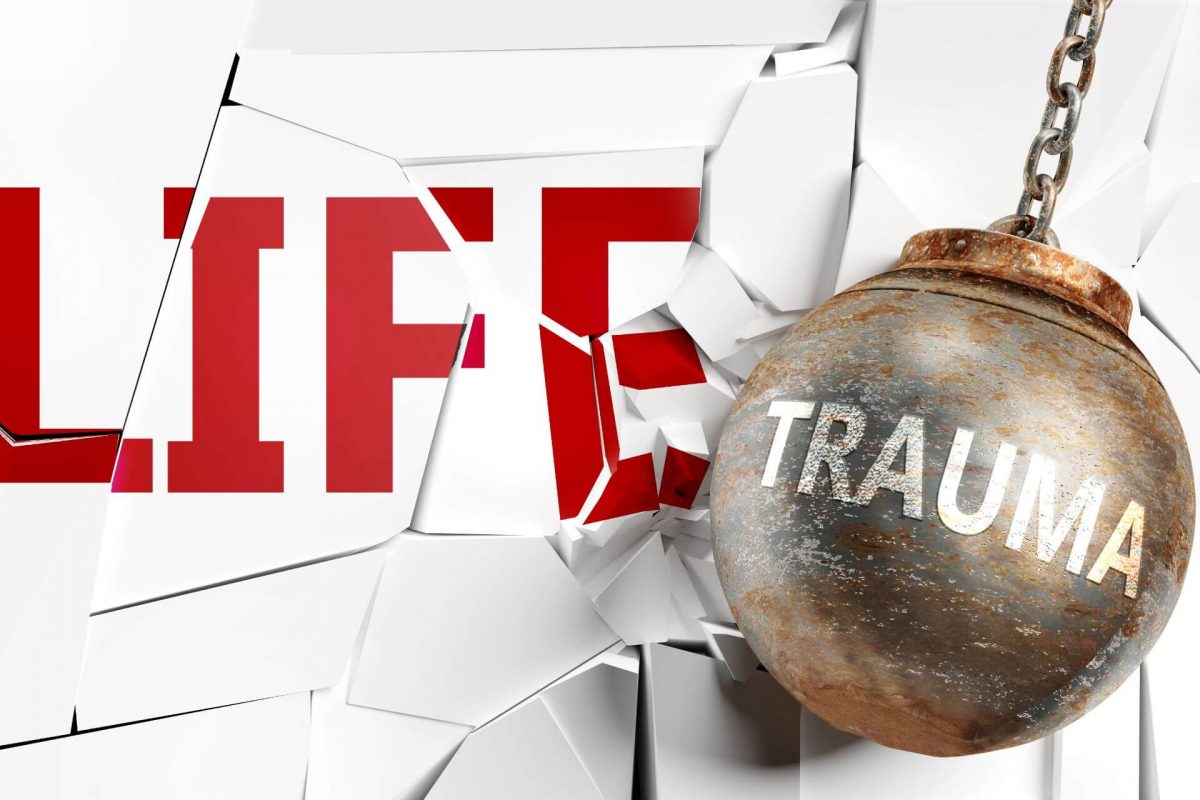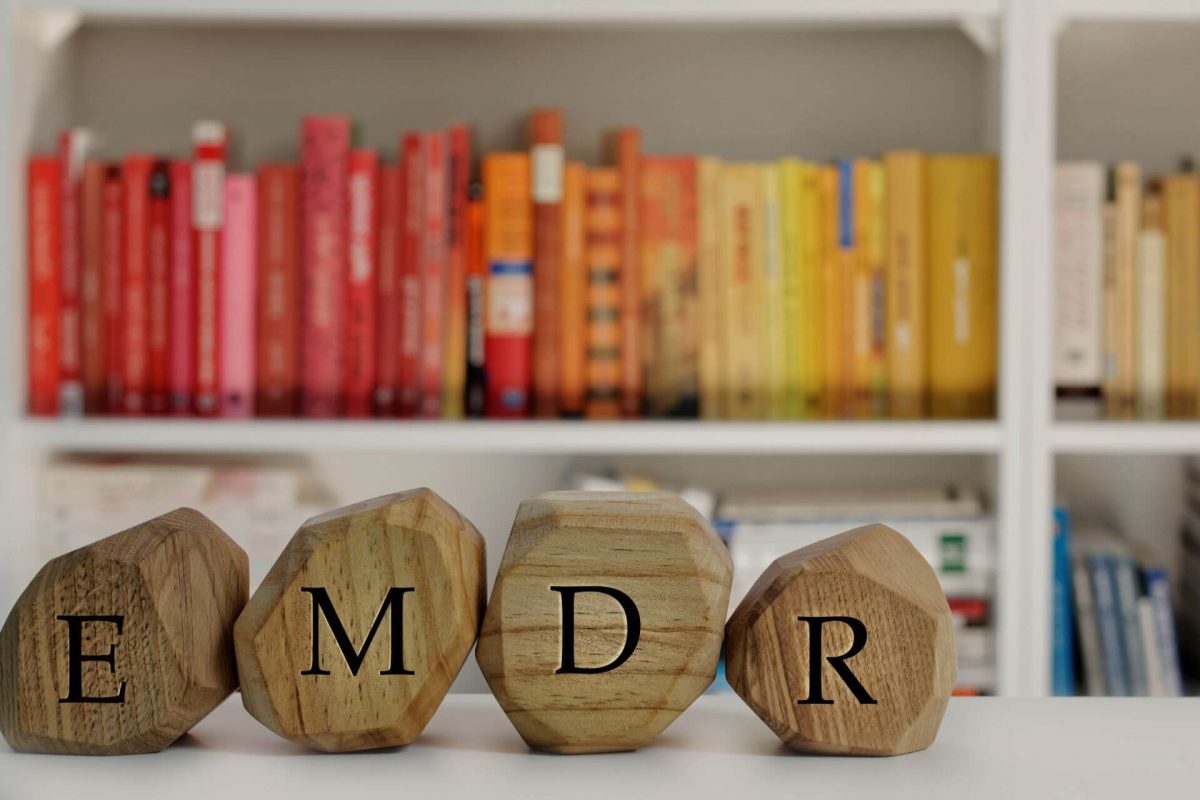Experiencing a traumatic event – whether it’s a global crisis or a personal tragedy- can profoundly impact your emotional well-being and mental health.
Effects of trauma
Managing daily tasks and functioning as you ordinarily would sometimes feel impossible after a tragedy or challenging event.
Traumatic events can leave us feeling vulnerable, scared, jumpy, anxious, and on edge – and these are just some of the symptoms one is likely to experience when traumatised.
However, the good news is that there are ways you can manage your trauma and regain control of your life.
Trauma response

Many different events can trigger traumatic stress and cause your nervous system to become activated. These events include:
- Natural disaster
- Terrorist attack
- Plane crash or traffic accident
- Global pandemic
- Violent crime
- The sudden loss of a loved one
Of course, the above list is not exhaustive, and many other life events can trigger a trauma response in your body.
Thoughts and feelings
You are also likely to experience a range of conflicting thoughts and emotions after a traumatic event.
There is no ‘normal’ to all this; however, you’ll likely experience emotions such as anger, confusion, intense shock, disbelief, fear, and in some cases, a person may struggle to feel anything at all (numb).
Essentially, there are no absolutes, for we all deal with traumatic events differently.
Repeated exposure to traumatic events
Repeated exposure to shocking events can also trigger a trauma response within the body, particularly the nervous system.
For example, twenty-four-hour media coverage often exposes us to horrific scenes and images that may cause us to feel upset and overwhelmed.
Such a bombardment of loss, suffering, and devastation may overwhelm your nervous system and trigger traumatic stress, almost as if you are experiencing the tragedy first-hand.
Impact of a traumatic experience
Traumatic stress has a way of obliterating our sense of security in the world.
With this in mind, it’s not surprising that a personal tragedy may leave you feeling vulnerable and helpless and can even shatter your sense of safety and security in a world that once felt safe and predictable.
Physical impact
There are other ways that traumatic stress can affect you.
For example, there may be times that you feel physically and emotionally drained or have difficulty concentrating; you may even be overcome with grief, experience outbursts of rage, or have trouble sleeping.
Typical reactions to abnormal events
The above symptoms are common traumatic responses, or to put it another way, they are normal reactions to abnormal events.
The anxiety does eventually fade away.
Typically, after a certain amount of time, the anxiety and traumatic stress experienced in the wake of a traumatic event start to dissipate.
It may take days, weeks or even months for life to return to normal, but the initial shock and disbelief associated with a tragic event gradually fades.
Seek professional help
During this time, there are many things you can do to restore balance within your nervous system. Such as trauma therapy, talk therapy and mindfulness therapy.
How trauma, dependency and stress are connected
Trauma, addiction and stress are very much intertwined.
If you think about how trauma causes profound stress in the mind and body, it may be no surprise that many people adopt unhealthy coping strategies, such as addiction to alcohol or drugs.
Unhealthy coping mechanisms
When struggling to process or come to terms with your trauma – numbing out complicated feelings by self-medicating may seem attractive.
Indeed, coping through adversity is no easy feat. Although substance abuse only worsens the problem.
In the aftermath of a traumatic event, it’s common for trauma survivors to experience post-traumatic stress disorder, anxiety, and depression symptoms.
Destructive coping strategies
Unfortunately, many traumatised individuals develop substance abuse issues and other addiction disorders to cope with their feelings and emotions.
Unsurprisingly, trauma, stress, and addiction go hand in hand.
Trauma symptoms
You may experience a wide range of symptoms after a traumatic event.
Such symptoms can range from mild to severe, and the intensity and frequency may come and go in waves.
A range of emotions
For example, you may feel anxious, jumpy or on edge, while other times, you may feel flat, numb and disconnected.
It’s important to know what symptoms to look out for to get the proper support and treatment.
Symptoms of psychological trauma
- Fear – involves worrying that a traumatic event will happen again
- Grief and sorrow – are especially prevalent when someone close has died or suffered life-altering consequences
- Disbelief and shock – involve struggling to accept or come to terms with what has happened. You may feel disconnected from others or numb
- Anger – such feelings may get directed inwards or towards others. You may blame medical staff, society or God. You may also experience intense bouts of rage
- Helplessness – the unpredictable nature of a tragic or traumatic event can trigger all kinds of feelings and emotions, from extreme vulnerability to anxiety and depression
- Guilt – it is possible for you to experience guilt – i.e. if you survived a natural disaster while others didn’t. You may also feel you could have done more to prevent the tragedy or didn’t do enough to help.
- Relief – for example, if someone close to you has been sick for some time, you may feel relief that their suffering is over and that they are finally at peace.
Physical symptoms
- Racing thoughts
- Rapid breathing
- Feeling faint or dizzy
- Unexplained bodily aches and pains
- Loss or increase in appetite
- Changes to your sleeping pattern
- Shaking or trembling
- Sweating
Traumatic stress Vs Post-traumatic stress disorder (PTSD)
Although traumatic stress and PTSD can look similar, there are significant differences between each condition.
As terrible as the symptoms of traumatic stress can be, they tend to improve over time and taking the proper self-care measures such as reaching out to a therapist or support group can help.
Ongoing symptoms
On the other hand, if you find that your symptoms of traumatic stress don’t improve or ease up with time, it’s likely that your nervous system is ”stuck”, meaning that you cannot move forward.
If the above occurs, you may be experiencing symptoms of PTSD, a condition that leaves you feeling stuck in psychological shock.
Post-traumatic stress disorder differs from traumatic stress, where the symptoms don’t get better or decrease over time; they may even worsen.
Speaking to a mental health professional
The psychological trio of trauma, stress and addiction (or dependency) can cause profound problems with daily functioning and may significantly disrupt your life.
Since the above conditions are often interconnected, speaking to a mental health professional with experience treating trauma and addiction is critical.
Mental health treatment
When people seek help for an addiction, they may not even be aware of the root cause of their substance abuse.
However, the individual is likely suffering from emotional trauma, either from their deep past or difficult experiences in adulthood.
Statistics
Statistics show that nearly 25 % of children and adolescents have experienced trauma.
Additionally, experiencing early trauma increases a person’s alcohol and drug addiction risk.
Treatment
Fortunately, there are effective treatments that tackle the long-term effects of trauma and addiction, including:
EMDR (eye movement desensitization reprocessing)

EMDR is a trauma treatment that focuses on bilateral eye movements or tapping the body while an individual recalls a traumatic memory.
Such therapy seeks to address the negative beliefs of a challenging event.
The aim is to challenge any adverse perceptions, ideas and beliefs that a person may have developed during a crisis.
For example, a person may believe they are to blame for what happened.
EMDR therapy aims to eventually change any unhelpful beliefs that may leave a person ”stuck” in their trauma, thus, allowing them to discharge any pent up energy and move forward.
Other therapies
Other evidence-based trauma and addiction treatments include:
- Talk therapy
- Cognitive behaviour therapy (CBT)
- Trauma-focused CBT
- Prolonged exposure therapy
- Substance abuse treatment
How White River Manor can help

Managing the effects of trauma can sometimes feel like a colossal mountain to be climbed; there are so many deep ridges, undulating paths, and rocks along the way.
However, healing from trauma is possible, and learning to cope with what has happened doesn’t have to occur in isolation.
Reaching out to friends, family, and even a professional for support is often the first step toward long-term recovery and healing.
If you are experiencing any of the symptoms mentioned in this article, our team of trauma and addiction specialists are here to listen and offer you support and guidance.
Contact us today for more information.







